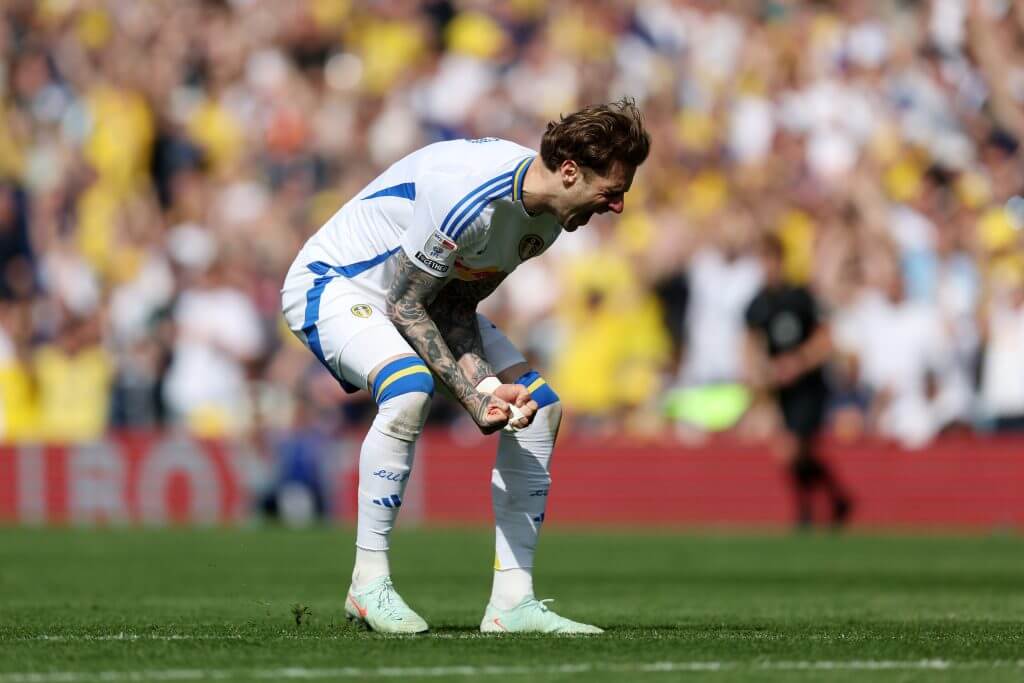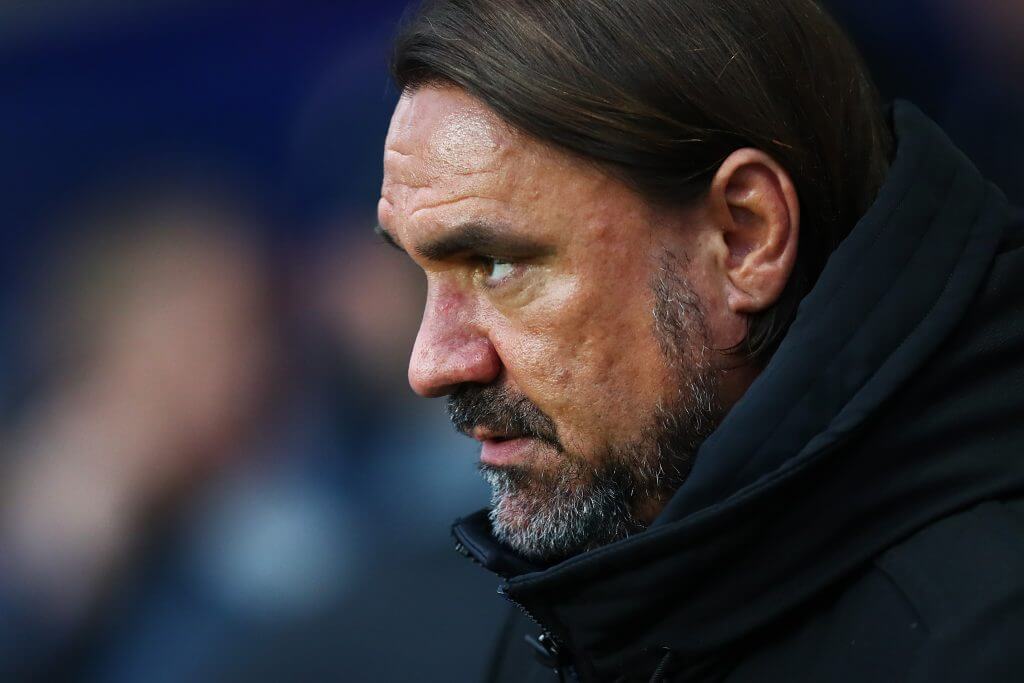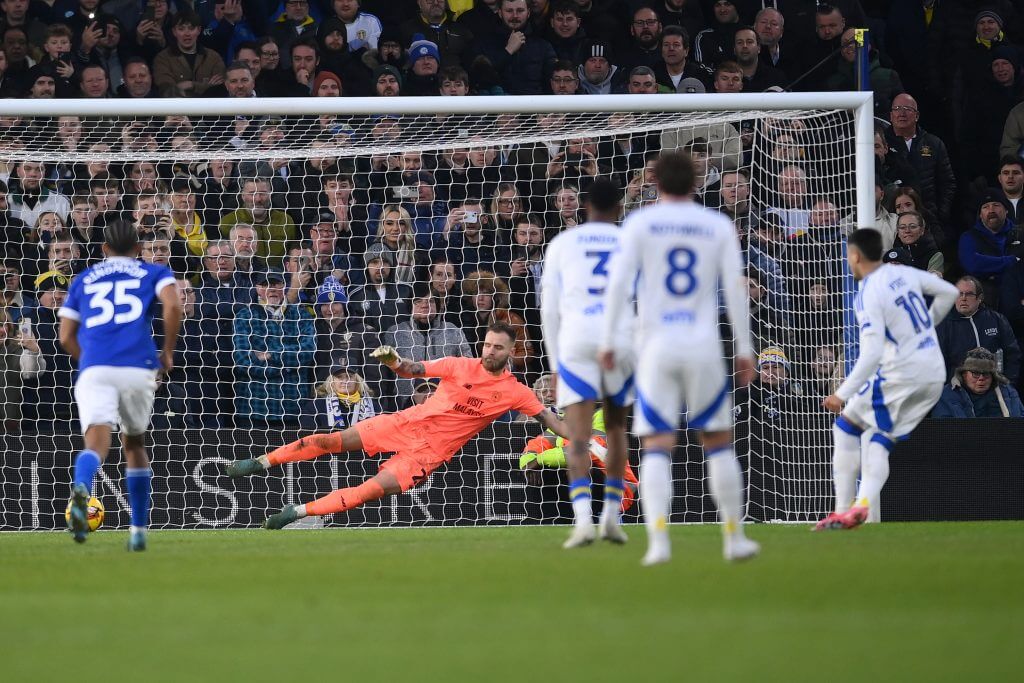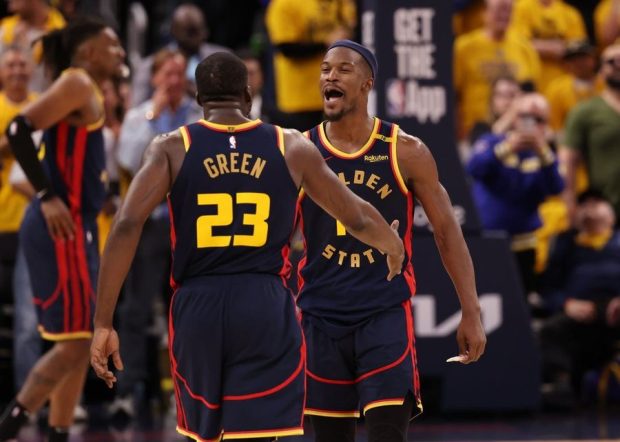
A line was drawn under the tears and the heartache before the sun went down on May 26, 2024. Daniel Farke wandered out on to Wembley’s blasted turf to comfort his Leeds United players. As Ethan Ampadu, Archie Gray and Georginio Rutter buried their tear-soaked faces into Farke’s shoulder, he had decided to go ahead with their party.
Advertisement
The club had booked out a venue in central Leeds for what they hoped would be a promotion celebration. Farke was asked if he wanted to go ahead with the gathering in the circumstances. He did.
The team flew back to Leeds from the capital and met on that Sunday night. It became a low-key, private affair with players and a few senior management gathered together, a wake more than a party. Sources, who spoke on the condition of anonymity to protect relationships, like all of those spoken to for this article, told The Athletic this was a defining night for Farke.
The manager wanted to circle the wagons, get everyone together after the wound of Wembley. Farke did not want everyone to go their separate ways to dwell on their pain alone. He saw it as an important opportunity to sign off in the right way, to draw a line under nine months of success before a fall at the final hurdle.
Before they parted, an attendee says Farke signed off by telling the squad to go away and come back ready for another promotion tilt.
United’s accounts for last season were published at the start of this month. Only Leicester City carried a bigger wage budget last term. Leeds had a promotion-ready squad and should have gone up in May 2024. Falling short of that had to be considered a failure by Farke.
But there was never any meaningful consideration given to sacking the German after the Wembley loss. 49ers Enterprises could see Farke had amassed a points tally that would have been good enough for promotion from the second tier in most years.

Ampadu on the pitch at full-time after the play-off final (Mike Hewitt/Getty Images)
Chairman Paraag Marathe has expressed in conversations that he was impressed with how the manager dealt with the opening weeks of his reign. The American has suggested that two or three of the candidates they interviewed for the job would have quit within a month because of the number of loan clauses being activated.
Advertisement
Farke swiftly made it clear what needed to change at the club going into his second season. He felt there was an attitude issue with some players in the squad — and that temperament needed to change.
In the run-up to the play-off final, it was evident to many sources around the squad that some players — and not necessarily those who moved in the summer — were expecting to leave Elland Road, whether Leeds were promoted or not. Farke’s clarity on what he wanted to see change during the close season was important to the hierarchy. They aligned with him on that.
Another of the key moments after the play-off final, flagged by those inside the club, was Farke’s decision with the captaincy. Ampadu was seen as a culture-setter. The Wales international’s voice was one of those to stand out in the hours after full time at Wembley.
A source who heard Ampadu speak said he told everyone to remember how much this hurt when the squad came back.
Ampadu’s name comes up again and again as you dig through the story of this season. He has been at the heart of driving this campaign in the dressing room and at the training ground. One moment caught the boardroom’s eye before the season began.
Every summer, United’s captain and leadership committee will go into Elland Road’s offices and negotiate the coming year’s bonuses with the club’s hierarchy. In previous years, Liam Cooper would have gone in with Stuart Dallas and Luke Ayling.
The expectation had been that Ampadu might turn up with Pascal Struijk or Illan Meslier for 2024’s summit at Elland Road. However, sources at the stadium say Ampadu came in on his own. People with knowledge of the conversation say he was told what the bonus pot would be and asked how he would like to divide it up, depending on how the team would perform over 2024-25.
Advertisement
In football, those making the biggest contribution in a squad commonly see the largest share of the bonus pot. Several sources told The Athletic that Ampadu said he wanted it shared equally. From Joe Rodon on 40-plus starts to James Debayo on one cameo, the skipper wanted everyone to receive the same bonus based on the team’s achievement.
Ampadu name-checked Debayo and Charlie Crew. He felt that if you’re turning up for training, going to every game, working hard and contributing to a successful environment, you’re worth as much as a regular starter. On hearing this at the time, one senior source told The Athletic: “I just thought something has changed here, that’s a really good sign.”
Dressing room sources said Ampadu’s decision hugely impressed the squad around him. This kind of equality is not something they were used to.
Ampadu saw it as a major honour to be given the captaincy while the squad were away in Germany on a pre-season training camp. The inclusivity he wanted to foster was plain to see.
Ampadu and Rodon made an effort to break Crew and Debayo in. During pre-season, Crew was interviewed and his senior compatriots ribbed him from the background.
Sources close to Ampadu say he wanted to lead the team in his own way: quietly, but with authority. He is not one for rousing speeches, but he has guided, encouraged and asked for more over the past nine months.
One source said: “He would reference the person who might have had a really bad moment (in a match), but he would say, ‘You’ve got to remember, in other games, they did this, this and this’. He absorbs the role fully.
“Even if he’s having a private conversation with somebody he would trust completely, he will not shed the role of captain or be anything other than 100 per cent supportive of all of his team-mates.”
Advertisement
There were frustrations for the No 4. A first knee injury in September kept him out for nearly three months, though he still returned ahead of schedule. More worryingly, in February, an injury to the other knee had the captain concerned that his season might be over. His powers of recovery saw him back within six weeks.
Last summer’s recruitment drive prioritised character over anything else. Leeds sources say Farke wanted players with the mettle and steel to get over the line. Forget resale value and development — they wanted players good enough for promotion now and nothing else.
The summer’s meaningful business started with the sale of Archie Gray to Tottenham Hotspur for £40million. A release clause, activated by failing to win promotion, took the matter out of United’s hands, but Elland Road chiefs maintain the teenager was sold with a heavy heart.

Rodon arrived in the summer while Gray moved to Tottenham (George Wood/Getty Images)
But senior sources felt it did make business sense. Trading Gray for Rodon in itself was seen as a net gain for promotion hopes, but tacking £30million on to the deal softened the blow even further.
Alex Cairns and Joe Rothwell, seasoned professionals, followed Rodon into the club before mid-July. Jayden Bogle, another player with a promotion on their CV, was the fourth arrival, but the last before an anxious month of waiting for Largie Ramazani, the fifth, to sign.
Sources close to Bogle, who had one year left on his deal at Sheffield United, say he had pondered seeing out his deal at Bramall Lane before assessing the free-agent market in 2025. Leeds turned his head. They say he has never been happier than he is now.
Marc Roca, Kristoffer Klaesson, Charlie Cresswell, Diego Llorente and Glen Kamara were among the sales made before the big two in August. Kamara’s poor attacking returns in 2023-24 made him dispensable, and the club made a profit on his move to Rennes.
Advertisement
Crysencio Summerville had been the one sale all parties expected to happen from the play-off final onwards. The Championship Player of the Season would go for a significant profit from a player they bought as a youth in 2020.
Rutter’s exit, according to multiple sources at Leeds, was the biggest disappointment of the summer. Brighton & Hove Albion had bid £30million at the start of July. At £40m, the value of his release clause, Leeds did not believe Brighton would see good value in a move for Rutter after one decent season in the second tier. They would prove to be sorely mistaken on the day that clause was due to expire. When United prepared to host Middlesbrough in the Carabao Cup, the offer came in.
Leeds were desperate for Rutter to stay, and appeals were made from the top of the club down to staff at Thorp Arch. He was seen as a potential difference-maker in the 2024-25 campaign. The forward was described as tearful as he said his goodbyes at the training ground on August 15. It was an unexpected departure that left the club in the lurch.
Ramazani, Manor Solomon, Ao Tanaka and Isaac Schmidt were all still to be signed at this point. The trip to West Bromwich Albion looked like a damage-limitation exercise.
While that quartet would eventually fill their various slots in the squad, another No 10, a direct replacement for Rutter, was not brought in.
Gustavo Hamer, senior sources admit, was the only player Leeds could be accused of missing out on. Rutter’s late exit meant, by the time Leeds reached out to Bramall Lane, Hamer’s own release clause had expired, keeping power in Sheffield United’s hands.
A £13million offer went in and was promptly rejected. There was a feeling at Elland Road £20m might have forced South Yorkshire hands, but sources close to United decision-makers did not feel the playmaker was worth that.
Advertisement
While the No 10 saga rumbled on, Leeds were committing to their final flurry down the flanks, at full-back and central midfield. Solomon emerged as a late option, partly due to good relationships with Tottenham. A Leeds source with knowledge of the negotiations told The Athletic that his loan deal included a unique clause based on his recent injury history. Leeds would not have to pay their share of Solomon’s salary during any period the Israel international was absent with a knee injury.
Tanaka has arguably been the biggest, most pleasant surprise of the summer arrivals. Leeds officials inside the room on the day the Japan international signed were encouraged by his first impression. Tanaka’s English was limited, but his message was clear: he had joined Leeds to win.
“Daniel doesn’t get enough credit for how put-together he is.” That’s the sentiment of at least one source close to the club’s ownership. More recently, they have contrasted Farke’s behaviour with Chris Wilder’s at Sheffield United. Wilder squared up to Plymouth Argyle players after a defeat earlier this month.
His press conferences are described by these senior sources as immaculate. As Farke himself has pointed out multiple times over the past two seasons, Leeds have a highly emotional fanbase. Players and club executives have admired the manager’s balanced approach on and off camera. His private demeanour is said to match the comments he makes to the media.
One source close to a senior member of the dressing room talked up Farke’s emotional intelligence. In the players’ eyes, the manager has never been too high or too low throughout the campaign. For this particular player, Farke is the best manager they have worked with.
Farke is likened to a good headmaster by those who have seen him operate around the training ground. The players like and respect him, but are left in no doubt who is the boss around Thorp Arch.

Farke has led Leeds to promotion (Cameron Howard/Getty Images)
Leeds have a squad stacked with talent. There are several players, good enough to feature every week for their rivals, who have had to make do with bit-part roles this term. The club’s hierarchy has been impressed by the way Farke has artfully managed that balance, avoiding any major bust-ups with those who have been on the fringes.
Advertisement
A source close to one of Farke’s senior players praised the freedom the manager had given him to play with. He trusts his players’ instincts.
There have only been two pinch points raised over the course of the conversations The Athletic has had with various sources this season: Illan Meslier and the early kick-offs.
Leeds have started 14 matches before 3pm across all competitions this season. They have won three, lost four and drawn seven of them. Farke stayed the course when members of the ownership group asked if he wanted to change any aspect of their usual routine to change their fortunes. Leeds offered to pay for the players to travel to early away kick-offs two nights before, giving the players more time to prepare.
Farke felt, according to one source in the club’s hierarchy, that changing their approach to early kick-offs in the latter stages of the season would only breed doubt among the players. He wanted calmness and players to have faith in the processes they had committed to over the previous 18 months.
Meslier’s form has been in question since the opening day of this season, but, for some fans, the doubts have been there for years now. The most memorable errors came at Sunderland and Hull City before what looks like his final act of the season, the home game with Swansea City.
Farke publicly backed Meslier after the Hull clash, in which the goalkeeper had a major hand in all three concessions of a 3-3 draw. There was consternation among some members of the club’s hierarchy at this sustained faith with the Frenchman. One source said, if there was one criticism of Farke in what have been two very good seasons, it is how long it took him to drop Meslier.
While Farke has drawn praise for keeping his squad on the straight and narrow, through all of the ups and downs this season, two summers of recruitment have left him with a very manageable group. One source close to a senior name said it spoke volumes about a player if they were not getting on with everyone in this Leeds squad.
Advertisement
If Brentford have a ‘no dickheads’ policy in transfer windows, Leeds have not fallen too far short of a similar strategy. Josuha Guilavogui is a prime example of the calibre of person United have sought to bring to the club.
The veteran almost never made it through the door at Elland Road. Cheikhou Kouyate was an option as a free agent after Ampadu and Ilia Gruev suffered concurrent long-term injuries in the autumn, with Christoph Kramer also targeted.
Senegalese midfielder Kouyate visited Thorp Arch and trained with the team, but the move broke down. Guilavogui was the next cab off the rank and has surpassed all expectations. One senior source at the club said: “I don’t believe you can have someone just for motivation, but he’s brilliant. He’s the one putting his arm around Willy (Gnonto) when he’s not got as much game time as he might have liked, same with Ramazani. He’s definitely a father figure.”
As recently as this month, Guilavogui was seen stopping Gnonto’s car as he went to leave Elland Road after the Preston North End win. He pulled the Italian out of the car to pose for pictures with fans and sign autographs.
It had become clear to those inside the club that Guilavogui’s impact would be felt more off the pitch than on it after his full debut against Harrogate Town, but there have been no regrets about bringing in such a model person to the squad.
Another mark of the squad’s unity came with the reintegration of Max Wober and Brenden Aaronson. They had each jumped ship on loan after relegation, but returned last summer. Their team-mates did not bat an eyelid, welcoming them back with open arms, provided they were ready to fight for promotion.
Entertainment versus results has been the debate around Farke’s style of football this season. For some sections of the fanbase, all that mattered was picking up wins every week, staying in contention and looking for promotion in May. For others, frustrations grew with how stale the atmosphere sometimes was as Leeds dominated Elland Road visitors and beat them into submission.
United have remained in the automatic promotion picture all season. It’s a squad packed with talent, which should be challenging, but it did not feel like the team and supporters properly combined until the 7-0 evisceration of Cardiff City in February.

Leeds beat Cardiff 7-0 in one of the high points of the season (Ben Roberts Photo/Getty Images)
There had been high points, such as the dominant home win over Sheffield United, but the Cardiff thrashing signalled the long-awaited alignment of the stars. The shackles seemed to be thrown off in that win.
Leeds did not play better this season than in the wins that followed away to Coventry City and Watford. The machine was purring and confidence was booming. Supporters sang of being champions at Vicarage Road, where the backroom staff, for the only time this season, lined up en masse, without the players, to celebrate with the fans.
Advertisement
While the performances were not as impressive, the ecstasy of the late, back-to-back wins over Sunderland and Sheffield United was unmatched until this springtime burst to the promised land. Farke’s own celebration in the Sunderland win, with him flat on his back on the pitch, underlined how big a step forward it felt.
The 17-match run, which took in those wins, is the club’s longest unbeaten streak in the league since 1974. This run took in the January transfer window, which prompted the usual cries for action from the terraces.
Cameron Archer was the only player they were ever meaningfully interested in. Southampton decided against making him available. Crew and Joe Gelhardt were allowed out on loan, but two offers were knocked back for Mateo Joseph.
Leeds sources say they rejected a £10million bid from Real Betis for the Spain under-21 international, while ex-director of football Victor Orta, now of Sevilla, also made a play for his former charge. Sevilla were open to sending Kelechi Iheanacho to Elland Road as part of a deal to take Joseph, but Leeds declined.
There will be deep sighs of relief among the raucous joy being felt across Leeds United tonight. A third consecutive Championship campaign, another failure from Farke, would have meant a reset and reconstruction of what this club looks like.
The cuts to the squad would have been deep, painful and have left the club with a mountain to climb next term. This promotion eases all of that pressure. It’s a very different kind of pressure coming down the road.
The money will start to flow in from the land of milk and honey, but 49ers Enterprises will need to spend to generate a squad capable of staying in the Premier League next season. This season’s disastrous attempts to stay in the top flight by last season’s promotion winners underline the scale of the task Marathe and his investors have in front of them.
Advertisement
There will be plenty of time for that kind of analysis and concern. But do not for a second think the players are looking beyond their final games.
Someone close to Ampadu recently spoke to him with encouragement about the struggles of Sheffield United, how it didn’t matter if Burnley kept winning, because Leeds could be clear in the top two. They were scalded in short order by Ampadu.
He said he wasn’t just interested in getting promoted — he wanted to win the league.
(Top image — Illustration: Eamonn Dalton / The Athletic; Lewis Storey, George Wood, Ben Roberts/Getty Images)
This news was originally published on this post .










Be the first to leave a comment